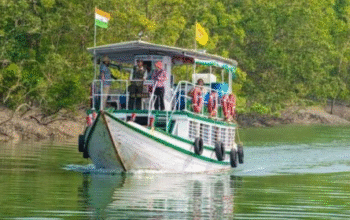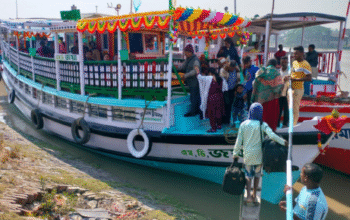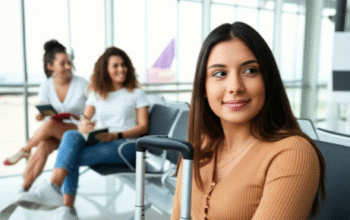What is cultural sensitivity in travel? Cultural sensitivity involves being aware of, respectful toward, and understanding of the customs, traditions, and social norms of the country or culture you’re visiting.
Why is cultural sensitivity important when traveling abroad? Being culturally sensitive helps foster positive interactions, avoid offending others, and shows respect for local traditions, ultimately enhancing your travel experience.
How can I learn about the culture of a country before I travel? Research online, read books, watch documentaries, or talk to people who have visited. You can also ask locals or fellow travelers about their experiences. Many travel guides provide cultural tips as well.
Yes. One should learn at least the most basic phrases of the local language, such as greetings, thank you, and please. Learning the local language can be considered a sign of respect and appreciation for the place you are visiting.
How do I dress appropriately when traveling abroad? Research the cultural norms for dress in the destination you are visiting. In some countries, modest dress is required, while in others, casual attire is acceptable. Always dress conservatively when visiting religious sites.
What are some cultural taboos to avoid when traveling? Inappropriate behavior in temples or churches, for example, public displays of affection in conservative cultures, giving gifts with certain symbolic meanings-apparently, colors and numbers could be taboo.
How do you show respect for local customs and traditions? Be observant and be minded to follow local behaviours, which might include greeting people in ways they prefer or respecting particular local customs related to dining, religion or family. If unsure, ask locals politely for guidance.
What do I need to know about tipping in other countries? Tipping customs vary by country. In some places, tipping is expected; in others, it may be included in the bill or discouraged. Research tipping etiquette for your destination.
How should I avoid offending locals while talking about politics or religion? Avoid politics or anything controversial around religion, history, or related topics unless you know the local views and are sure it is appropriate to discuss. Always be respectful if such topics come up.
Is it all right to take pictures of people or landmarks abroad? Always ask permission before taking pictures of individuals, especially in rural or conservative areas. Be sensitive to the cultural norms about photography, especially at religious or sacred sites.
Respect local eating habits and dining etiquette. Learn local practices, such as whether eating with one’s hands is acceptable or not, whether to use utensils, or if you need to leave food on the plate. Waiting for the host to begin the meal is also important.
If I accidentally offend them, I should be sorry and make them know that I made a wrong move. People like it when you try to understand their cultures and are mostly easy to get along with if you respect them and apologize afterwards.
How do I avoid cultural appropriation while traveling? Be wary of using the traditional clothing, art, or customs in a way that can be considered disrespectful or superficial. Learn what the cultural symbols and traditions are before engaging in them.
What is the best way to handle cultural differences in communication? Be patient and observe how locals communicate. Be mindful of tone, gestures, and body language, as these can vary greatly from culture to culture. If in doubt, communicate politely and respectfully.
How can I connect meaningfully with the locals? Just approach people with openness, curiosity, and respect. Learn about their way of life, ask questions, and participate in cultural activities. Showing genuine interest can lead to lasting and enriching connections.
What should I know about personal space in other cultures? The concept of personal space varies by culture. In some countries, people stand closer when speaking, while in others, more space is preferred. Be observant and follow the behavior of those around you.
Is it essential to respect the environment and nature while traveling abroad? Yes, it is part of cultural sensitivity to be environmentally conscious. Obey the local rules concerning waste disposal, conservation efforts, and respecting natural spaces. Support the practice of eco-friendly and sustainable tourism.
Practice cultural sensitivity when shopping abroad. Know the value of items in local markets, and do not bargain aggressively in cultures where bargaining is not a norm. Be respectful of local craftsmanship, and support small businesses and local artisans.
Religion’s role in cultural sensitivity: Religion plays a great role in the lives of most cultures. Therefore, respect the religious practices and rituals, dress appropriately when visiting places of worship, and refrain from criticizing or questioning religious beliefs.
How do I act in religious or sacred spaces overseas? Research rules about visiting religious sites, for example, removal of shoes, covering your head, or dressing modestly. Approach such places with reverence and respect the staff or local guides’ instructions.
Some cultural differences related to greetings and gestures are handshakes, bows, kisses on the cheek, or hugs, depending on the culture. Research how people greet each other in your destination and be aware of gestures that might have different meanings.
Is it all right to speak in English when traveling abroad? Most people understand some English, but learning a few basic phrases in the local language shows respect. In areas where fewer people speak English, it’s polite to use simple phrases or gestures to communicate.
What is “quiet tourism” and how does it relate to cultural sensitivity? Quiet tourism involves visiting places without disturbing the local culture, traditions, or environment. It focuses on mindfulness, respecting local communities, and minimizing your impact.
How can I learn about local history and traditions during my trip? Visit museums, attend local performances, participate in cultural workshops, or hire a local guide to gain deeper insights into the history and traditions of the area.
Handling the language misunderstanding with a traveler will require patience, and you could communicate through gestures or pictures. Stay calm, be smiling, and express yourself as simply as you can. Chances are many locals will be appreciative and willing to help.
Be a local by staying updated on what locals wear and staying away from overflashy clothes or accessories. Try blending with the crowd by staying in tune with the surrounding locals’ customs and avoiding anything that screams, “I’m a tourist.” such as large guidebooks or maps.
How do I respect local customs related to gifts and souvenirs? Be aware of cultural norms regarding gift-giving. In some cultures, it’s common to bring a gift when visiting a person’s home. In others, it is simply not necessary or inappropriate. Pay attention to what you give and the way in which you present it.
What is responsible tourism and how can one be a responsible tourist? Responsible tourism is travelling with awareness and consciousness of its environmental, cultural, and social impact. It is also respecting local traditions, reducing your carbon footprint and contributing to sustainability.
The approach with cultural differences involving time and punctuality is highly subjective. I have seen the difference between places where punctuality is a hot-button topic and those places where people never seem to really care about such things. Know the local norms and adapt. Be respectful but accommodating.
Approach a culture shock traveling abroad with patience by allowing time to adjust to new environments. Be open-minded, learn to appreciate the differences, and see the opportunities for learning that have been afforded to you. Stay open-minded, don’t be afraid to seek help from other fellow travelers or locals.
Stay culturally sensitive and open-minded and enjoy enriched moments while traveling, connecting with locals on a positive note, and having a more fulfilling foreign journey.





Can you be more specific about the content of your article? After reading it, I still have some doubts. Hope you can help me. https://accounts.binance.com/ru/register-person?ref=O9XES6KU
I don’t think the title of your article matches the content lol. Just kidding, mainly because I had some doubts after reading the article. https://www.binance.com/es/register?ref=RQUR4BEO
I don’t think the title of your article matches the content lol. Just kidding, mainly because I had some doubts after reading the article.
I don’t think the title of your article matches the content lol. Just kidding, mainly because I had some doubts after reading the article.